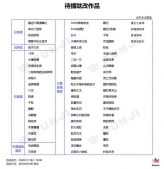两者在使用效果上没有任何区别,都是为了将实例化后的vue挂载到指定的dom元素中。
如果在实例化vue的时候指定el,则该vue将会渲染在此el对应的dom中,反之,若没有指定el,则vue实例会处于一种“未挂载”的状态,此时可以通过$mount来手动执行挂载。
注:如果$mount没有提供参数,模板将被渲染为文档之外的的元素,并且你必须使用原生DOM API把它插入文档中。
例如:
|
1
2
3
4
5
6
7
8
9
10
11
12
13
|
var MyComponent = Vue.extend({ template: '<div>Hello!</div>'})// 创建并挂载到 #app (会替换 #app)new MyComponent().$mount('#app')// 同上new MyComponent({ el: '#app' })// 或者,在文档之外渲染并且随后挂载var component = new MyComponent().$mount()document.getElementById('app').appendChild(component.$el) |
补充知识:Vue 实例挂载方法($mount)的实现
在 Vue 的 _init 方法中已经回调了beforeCreate 和created这两个生命周期钩子,在此之后就进行了实例的挂载
|
1
2
3
|
if (vm.$options.el) { // 挂载实例 vm.$mount(vm.$options.el);} |
在挂载函数中,将要进行 beforeMount 和 mounted 的回调。
在不同的平台下对于 $mount 函数的实现是有差异的,下面考虑 web 平台的 runtime-with-compiler 版本 , 其在web平台下的定义如下(src/platforms/web/runtime/index.js)
|
1
2
3
4
5
6
7
8
9
10
|
import { mountComponent } from 'core/instance/lifecycle';Vue.prototype.$mount = function( el?: string | Element, hydrating?: boolean): Component { el = el && inBrowser ? query(el) : undefined; return mountComponent(this, el, hydrating);}; |
在$mount函数的参数中,第一个为我们属性的el, 第二个参数为服务端渲染有关,在patch函数中用到,这里可以忽略。
但是在调用这个$mount函数的时候,首先调用的是不同版本下的$mount函数,然后在该函数中再调用相应平台的$mount函数,如下在 runtime-with-compiler 版本中$mount函数如下(src/platforms/web/entry-runtime-with-compiler.js)
|
1
2
3
4
5
6
7
8
9
10
11
12
13
14
15
16
17
18
19
20
21
22
23
24
25
26
27
28
29
30
31
32
|
import Vue from './runtime/index';const mount = Vue.prototype.$mount; // 缓存 上面的 $mount 方法Vue.prototype.$mount = function( el?: string | Element, hydrating?: boolean): Component { el = el && query(el); // 不能挂载到 body 和 html 上 if (el === document.body || el === document.documentElement) { return this; } const options = this.$options; if (!options.render) { // 如果没有 render 函数 // ... 将 render 函数添加到 options 上 const { render, staticRenderFns } = compileToFunctions(template, { outputSourceRange : process.env.NODE_ENV !== 'production', shouldDecodeNewlines, shouldDecodeNewlinesForHref, delimiters : options.delimiters, comments : options.comments, }, this); options.render = render; options.staticRenderFns = staticRenderFns; // ... } return mount.call(this, el, hydrating);}; |
可知该函数主要干了三件事
1、由于挂载之后会替换被挂载的对象,所以限制不能挂载到 body 和 html 上
2、如果当前Vue实例没有 render() 函数(写template等),则通过编译等手段,将render函数添加到 options 上
3、调用在代码开头我们先缓存的$mount方法,该方法就是web平台下的方法。
在web平台下的$mount方法里面主要就是调用了mountComponent() 方法,接下来我们的核心就是该方法了
在'core/instance/lifecycle.js 文件中我们找到了该方法的定义,删掉一些非重点代码后如下
|
1
2
3
4
5
6
7
8
9
10
11
12
13
14
15
16
17
18
19
20
21
22
23
24
25
26
27
28
29
30
31
32
33
34
|
export function mountComponent( vm: Component, el: ?Element, hydrating?: boolean): Component { vm.$el = el; if (!vm.$options.render) { // 不是重点,该处主要是用来对没有 render 函数下的一些错误提示 } callHook(vm, 'beforeMount'); // 回调 beforeMount , 开始准备挂载实例 // 声明 更新组件 的函数 (源代码中有关performance配置不是重点,故省略) const updateComponent = updateComponent = () => { vm._update(vm._render(), hydrating); }; // new 一个 Watcher [isRenderWatcher] new Watcher(vm, updateComponent, noop, { before() { if (vm._isMounted && !vm._isDestroyed) { callHook(vm, 'beforeUpdate'); } }, }, true /* isRenderWatcher */); hydrating = false; // Vue 的根实例的 mounted 回调在这里执行 if (vm.$vnode == null) { vm._isMounted = true; callHook(vm, 'mounted'); } return vm;} |
上面的代码中主要干了如下三件事
1、回调 beforeMount
2、生成 updateComponent 方法,该方法将 vnode 渲染为真实的DOM
3、new 一个 Watcher ,并在该 Watcher在调用updateComponent方法
4、回调 mounted
对于 updateComponent方法较为复杂,其内部主要调用_update()将 vnode渲染为浏览器上显示的真实DOM
我们考虑如下两个问题
1. Watcher 中如何调用 updateComponent方法
Watcher 函数的构造函数接受如下的参数
|
1
2
3
4
5
6
7
|
constructor( vm: Component, expOrFn: string | Function, cb: Function, options?: ?Object, isRenderWatcher?: boolean ) |
在上面的代码中,updateComponent()方法作为第二个参数传递过来,即构造函数中的expOrFn
往下看会看到
|
1
2
3
|
if (typeof expOrFn === 'function') { this.getter = expOrFn;} |
也就是说updateComponent()方法被设置为了getter()方法
看到构造函数的最后
|
1
2
3
|
this.value = this.lazy ? undefined : this.get(); |
其中 lazy 属性的值在前面被设置为了 false
this.lazy = !!options.lazy; // 我们 options 中没有 lazy 属性
这也就是说,咋i构造函数的末尾会调用this.get(),而在this.get()中
|
1
2
3
4
|
const vm = this.vm;try { value = this.getter.call(vm, vm);} |
我们看到调用了getter()方法,也就是调用了updateComponent()方法。
2. 为什么根实例的$vnode为空
在initRender()函数中有如下代码
const parentVnode = vm.$vnode = options._parentVnode;
也就是说 当前实际的 $vnode 值为其父节点的vnode值
而根实例没有父节点,故其$vnode值就为空了,所以会执行
|
1
2
3
4
|
if (vm.$vnode == null) { vm._isMounted = true; callHook(vm, 'mounted');} |
那么子节点的mounted回调是在那里执行的呢?
在 path()(core/vdom/patch.js) 函数中有如下代码
|
1
2
3
4
5
6
7
8
9
10
|
function invokeInsertHook(vnode, queue, initial) { if (isTrue(initial) && isDef(vnode.parent)) { vnode.parent.data.pendingInsert = queue; } else { for (let i = 0; i < queue.length; ++i) { queue[i].data.hook.insert(queue[i]); // 这里 } }} |
在循环queue的时候,调用了 insert()方法,该方法为 VNodeHooks,其在componentVNodeHooks(core/vdom/create-component.js)中声明,代码如下
|
1
2
3
4
5
6
7
8
9
10
11
12
13
14
15
16
17
18
|
const componentVNodeHooks = { insert(vnode: MountedComponentVNode) { const { context, componentInstance } = vnode; if (!componentInstance._isMounted) { componentInstance._isMounted = true; callHook(componentInstance, 'mounted'); // 这里 } if (vnode.data.keepAlive) { if (context._isMounted) { queueActivatedComponent(componentInstance); } else { activateChildComponent(componentInstance, true /* direct */); } } },} |
由于 path() 方法在 _update()函数中调用,这部不再重点说明。
下节我们将来说说render() 和 _update() 方法的实现
以上这篇vue $mount 和 el的区别说明就是小编分享给大家的全部内容了,希望能给大家一个参考,也希望大家多多支持服务器之家。
原文链接:https://blog.csdn.net/c2311156c/article/details/80415633





